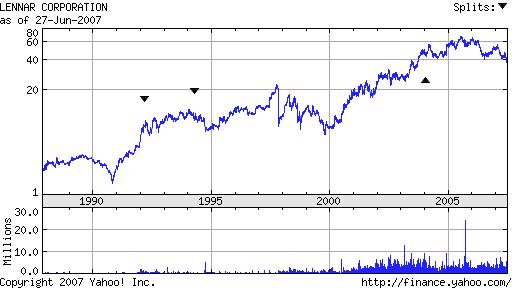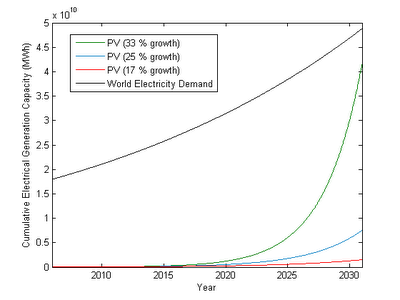http://news.moneycentral.msn.com/pro...627&ID=7096502
High risks see super-rich pull away. 6/27/07 11:11PM
Not much happening on iTulip tonight. I guess everyone is emotionally worn out from watching Larry King interview Paris Hilton (I can't seem to find the emoticon that represents projectile puking.)
Copyright 2007 Financial Times
High risks see super-rich pull away. 6/27/07 11:11PM
Not much happening on iTulip tonight. I guess everyone is emotionally worn out from watching Larry King interview Paris Hilton (I can't seem to find the emoticon that represents projectile puking.)
The world's 100,000 "super-rich" last year extended their lead over the merely affluent, an authoritative study of the world's wealthy has found.
Last year, the assets of those with more than $30m to invest – the so-called ultra-high net worth individuals – expanded by 16.8 per cent. By comparison, people with assets of $1m-$5m saw their wealth grow by 6.4 per cent.
The number of ultra-high net worth individuals also swelled by more than 10 per cent – more than the growth in the total pool of wealthy individuals.
The number of people with $1m or more to invest grew by 8 per cent to 9.5m last year, and the wealth they control expanded to $37,200bn. About 35 per cent is in the hands of just 95,000 people with assets of more than $30m.
The study, prepared by Merrill Lynch and Cap Gemini, highlights a growing gap between the super-rich and those who would normally consider themselves wealthy. The gap has been exacerbated by rising markets and the forces of globalisation, which have allowed a relatively small number of people to accumulate vast fortunes.
Nick Tucker, head of Merrill Lynch's global private client group in the United Kingdom and Ireland, said the difference reflected a willingness by the very rich to take greater risks.
"Ultra-high net worth individuals are very aggressive investors," he said. "If things are good, they will do better than the high net worth individuals, who are more cautious."
The study found wealthy investors dramatically reduced their investments in hedge funds and private equity last year, increasing their exposure to real estate and equities.
In 2006, an average of about 10 per cent of the assets controlled by high net worth individuals was in alternative investments, compared with 20 per cent in the previous year. They boosted their investment in real estate to 24 per cent, up from 16 per cent in previous years.
Mr Tucker said the shift was partly a short-term shift designed to take advantage of better returns in real estate, and that he expected exposure to alternative investments to rise again in future years. However, it also reflects the growing range of options available to investors who want exposure to the asset class, notably the growing number of real estate investment trusts.
The developed world continues to dominate the ranks of the world's rich: 64 per cent of high net worth individuals live in the United States, Japan, Germany, France or the UK. But in Singapore, India, Indonesia and Russia the number of high net worth individuals grew by more than 15 per cent last year.
Last year, the assets of those with more than $30m to invest – the so-called ultra-high net worth individuals – expanded by 16.8 per cent. By comparison, people with assets of $1m-$5m saw their wealth grow by 6.4 per cent.
The number of ultra-high net worth individuals also swelled by more than 10 per cent – more than the growth in the total pool of wealthy individuals.
The number of people with $1m or more to invest grew by 8 per cent to 9.5m last year, and the wealth they control expanded to $37,200bn. About 35 per cent is in the hands of just 95,000 people with assets of more than $30m.
The study, prepared by Merrill Lynch and Cap Gemini, highlights a growing gap between the super-rich and those who would normally consider themselves wealthy. The gap has been exacerbated by rising markets and the forces of globalisation, which have allowed a relatively small number of people to accumulate vast fortunes.
Nick Tucker, head of Merrill Lynch's global private client group in the United Kingdom and Ireland, said the difference reflected a willingness by the very rich to take greater risks.
"Ultra-high net worth individuals are very aggressive investors," he said. "If things are good, they will do better than the high net worth individuals, who are more cautious."
The study found wealthy investors dramatically reduced their investments in hedge funds and private equity last year, increasing their exposure to real estate and equities.
In 2006, an average of about 10 per cent of the assets controlled by high net worth individuals was in alternative investments, compared with 20 per cent in the previous year. They boosted their investment in real estate to 24 per cent, up from 16 per cent in previous years.
Mr Tucker said the shift was partly a short-term shift designed to take advantage of better returns in real estate, and that he expected exposure to alternative investments to rise again in future years. However, it also reflects the growing range of options available to investors who want exposure to the asset class, notably the growing number of real estate investment trusts.
The developed world continues to dominate the ranks of the world's rich: 64 per cent of high net worth individuals live in the United States, Japan, Germany, France or the UK. But in Singapore, India, Indonesia and Russia the number of high net worth individuals grew by more than 15 per cent last year.


Comment